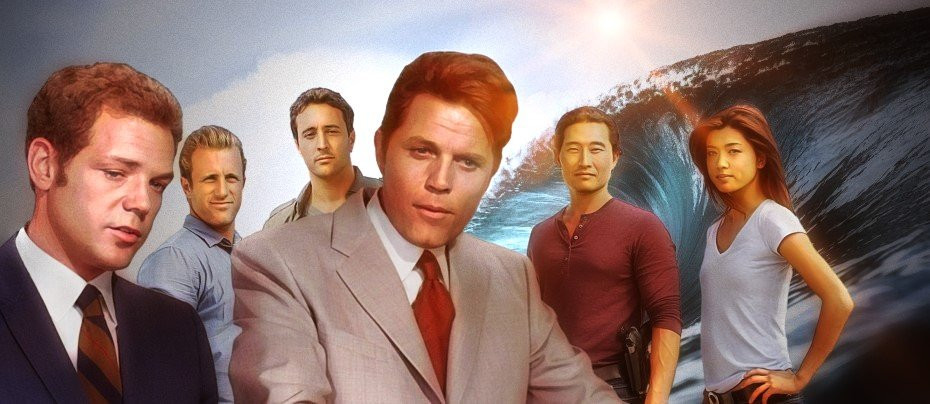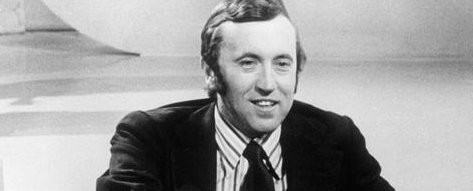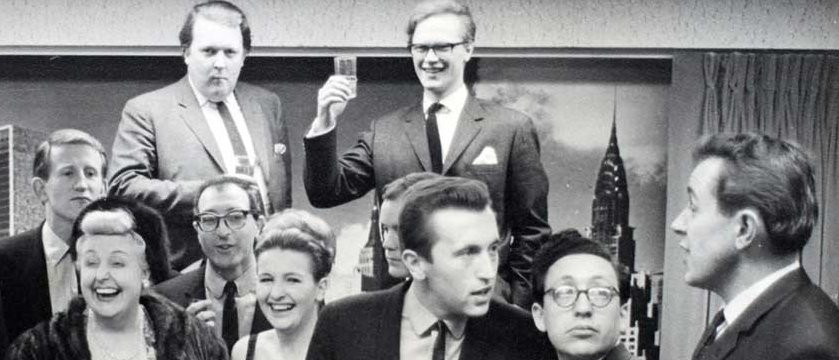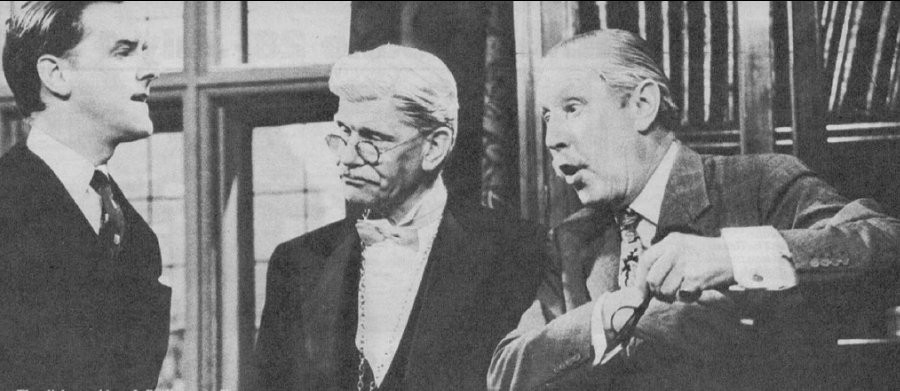
Bandwagon: The Series
2010 - United StatesReview: John Winterson Richards
To mark this reviewer's one hundredth post on Television Heaven, our Editor agreed to something a little bit different:
A review of... 'The Best Show of Which You Have Never Heard.'
Now this is quite a challenge. This website attracts some very knowledgeable people, including many who have worked in television. People often come here precisely because they are looking for information about some fairly obscure stuff. This is one of the few resources that offer it, especially since IMDb closed their message boards.
So to boast that something is 'The Best Show of Which You Have Never Heard' is a hostage to fortune. It is almost certain to invite reactions on the lines of "Never heard of it? I never stopped hearing about it when my uncle was key grip on the set!" Or "Never heard of it? I produced it!"
Subject to that happening, we feel that we are at least on fairly solid ground proposing Bandwagon as 'The Best Show of Which You Have Never Heard' and subsequently 'Possibly the Best Show You Have Never Watched' - because, at the time of writing, only a few thousand people have ever watched it.
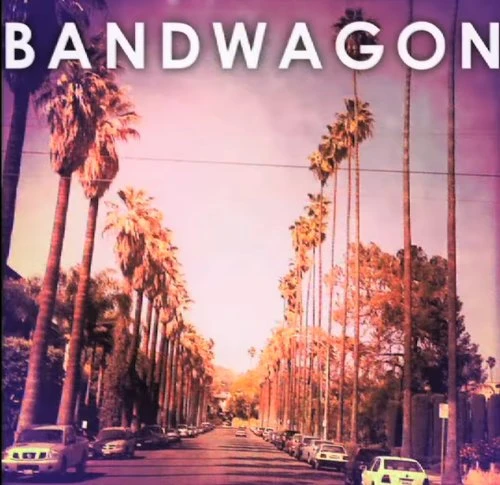
Giving a little publicity to shows that deserve to be better known is one of the great motivations behind writing some of these reviews. Yet, in this case, there is an additional motivation: it enables us to shine a brief spotlight on a genre that is television and yet not television, perhaps the latest evolution of television and the greatest threat to television.
This is the "web series." Of course, those on the big platforms like Netflix and Amazon are in effect broadcast, and we have reviewed them as such. However, they are but the tip of a huge iceberg of episodic series available online, especially on open access video sharing platforms like YouTube and Vimeo. These vary enormously in quality. Most are basically amateur, the equivalent of kids making films in Super 8 as Sam Raimi did before he made 'The Evil Dead.' At a slightly higher level are serious hopefuls - possibly from the huge surplus of film school graduates - setting out their wares with the intention of making a living from them. Near the top of the pyramid, of broadcast quality and aspiring to be picked up for broadcast, are "downtime" projects of real "Industry" professionals.
It is in the nature of "The Industry" that even established names may have a lot of time free "between jobs." Actors and technicians may take on work "for scale," the minimum their union rules allow, in order to remind people they still exist, to pad their curricula vitae on IMDb, and to provide up to date material for their "showreels." Indeed, even busy big names sometimes take on innovative independent projects at huge discounts in order to show their skill and versatility.
We select ‘Bandwagon’ as an example to illustrate this whole genre of what might be termed "micro web series" because it is the best your reviewer has ever seen that was not broadcast - and indeed superior to the majority of shows that have actually been broadcast. It is a cleverly worked satire on Hollywood from the bottom of the top - from the sort of people who made and feature in it, "above the line" talent struggling to establish and maintain serious careers.

It had a complex evolution. It started life as a 2004 independent feature film of the same name that attracted a lot of praise but no general release. It was therefore divided into episodes of up to ten minutes each and put online as a "web series." That attracted enough attention for a sequel, this time intended specifically as a series and called 'Bandwagon: The Series' - even if it is actually the second series if one includes the chopped up film as a series. For the purposes of this review, we will ignore the film and focus on the second series which is also the first. Clear?
The title 'Bandwagon' refers to the way "celebrities" adopt "causes" as a way of publicising their own careers. It has a double meaning because it is a vehicle for its star, Emma Caulfield, both on screen and in real life.

Caulfield is a very talented actress, best known as Anya in Buffy the Vampire Slayer. She was the source of much of the humour in the later seasons of that show, and basically saved its controversial fourth season single handed, Anya having effectively taken the place of the sarky Cordelia (Charisma Carpenter) as the member of Buffy's support team who stands a little apart from it. Gifted with a perfect deadpan delivery, she is a great comedienne, but also delivered one of the best dramatic moments in the series in the episode 'The Body.' She is a classic beauty, with a passing resemblance to Tuesday Weld, and her bone structure alone might have made her a big star in the Golden Age of Hollywood. Alas, she was born too late - in an aesthetically challenged age with little appreciation of what really makes a woman attractive.
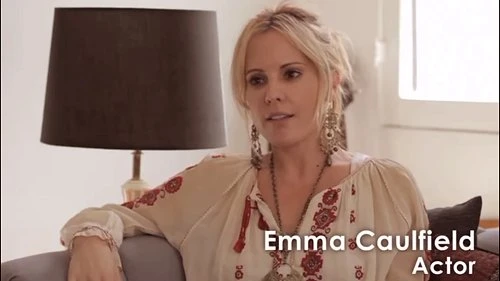
As a result, she has struggled to get out of that mid-career trench - which is far more unfair to women than to men - when actors are no longer young enough for leading roles but not yet old enough for character roles. She starred in one major feature film that had great commercial success but was a critical disaster, and in several other projects which were critical successes but commercially not really even on the score board.
It was therefore a brave decision to play an unflattering version of herself in 'Bandwagon' as an actress desperate to raise her profile - especially since she made the original 2004 film before such negative self-portraits become more common, in Extras, Episodes, and the like, so that the public were better equipped to accept that they were not meant to be real.
After a misjudged attempt, in the 2004 film, to take up the cause of the "developmentally challenged," in 2010 the Caulfield character tries to publicise the plight of inner city teenagers in 'Bandwagon: the Series' - by producing a television series which is pitched as an "urban" version of 'Glee.' The word "urban" is code for "black," but such were the sensitivities even then that - almost - everyone tries to tiptoe around using the word.
The script is merciless, and extremely brave, in its satire of Hollywood's superficiality and its attitude to so called "political correctness." Everyone is terrified of breaking the rules, even if no one is entirely sure what they are, and loud in their proclamation of high ideals, despite knowing that in Hollywood commercial reality will always prevail.
This is what happens in 'Bandwagon.' The unmentioned "blackness" of the original concept, the only thing about it that makes it at all original or worthwhile, is diluted by the imposition of a heavy handed white director and inexperienced white actresses until all that is left is an appallingly bad imitation of 'Glee.' All this is done remorselessly and very politely in the best LA tradition.
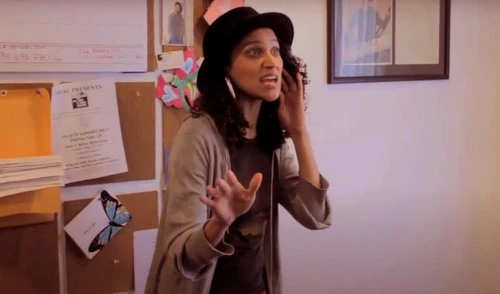
The series fits a lot into twelve episodes with a total running time of less than two hours. A "mockumentary," it adopts a naturalistic Robert Altman structure and style which gives it great authenticity and depth, even if it sometimes makes it difficult to follow. Some of the best bits are tiny details, like throwaway lines, which are easy to miss. It may be worth watching twice to get them - in fact, it is definitely worth watching twice because it has so much to offer the viewer who pays attention. To be honest, some of the sub plots and side characters add little, but all comes together beautifully in a couple of great episode-long set piece scenes. One is the Party From Hell, the other a chaotic casting session with all the dignity of a meat market. Together they sum up perfectly what the aspirant must endure to gain access to Hollywood.

Caulfield is not the only recognisable name in the cast. Her onscreen producing partner is Tracie Thoms, a very hardworking actress then and since, playing herself as a well-meaning idealist. Yvette Nicole Brown from 'Community' plays Tracie's rather hypocritical LA friend. However, it is a relative unknown, Sheilynn Wactor, who steals almost every scene in which she appears as Chandelier, Tracie's fiercely loyal friend from "back home" who prides herself on saying exactly what she thinks - whether anyone wants to hear it or not.
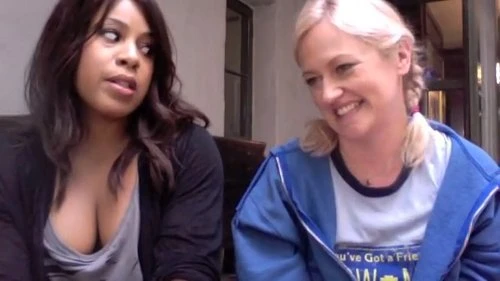
Nevertheless, it remains Caulfield's show. Her delivery of a casual line about Tracie coming from Baltimore is a minor masterpiece, as is the look on her face when Tracie and Chandelier are discussing what to do with an object of their mutual dislike who is an old enemy of her own. Someone find this woman more work: she has so much to offer.
The same is true of the people involved in so many of these "micro web series." Contrary to the old saying, there is only so much room at the top, and it is sometimes very depressing to see how the big contracts still get shared among the same tired faces when there is so much talent on the lower rungs of the ladder looking for a break.
As well as being made by such people, 'Bandwagon' is a tribute to them. If 'The Player' remains the best modern satire on the small number of people at the top in Hollywood, only 'Swingers' bears comparison with 'Bandwagon' as an evocation of what the vast majority of people experience when they go to LA in the hope of gaining admittance to "The Industry." Anyone who has ever gone there should look it up on YouTube and will understand why.
John Winterson Richards
John Winterson Richards is the author of the 'Xenophobe's Guide to the Welsh' and the 'Bluffer's Guide to Small Business,' both of which have been reprinted more than twenty times in English and translated into several other languages. He was editor of the latest Bluffer's Guide to Management and, as a freelance writer, has had over 500 commissioned articles published.
He is also the author of ‘How to Build Your Own Pyramid: A Practical Guide to Organisational Structures' and co-author of 'The Context of Christ: the History and Politics of Rome and Judea, 100 BC - 33 AD,' as well as the author of several novels under the name Charles Cromwell, all of which can be downloaded from Amazon. John has also written over 90 reviews for Television Heaven.
John's Website can be found at John Winterson Richards
Seen this show? How do you rate it?
Seen this show? How do you rate it?
Published on July 29th, 2020. Written by John Winterson Richards for Television Heaven.


